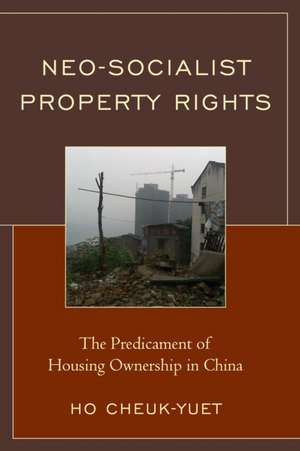Neo-Socialist Property Rights
Autor Cheuk-Yuet Hoen Limba Engleză Hardback – 15 iul 2015
Preț: 735.69 lei
Preț vechi: 1007.80 lei
-27% Nou
Puncte Express: 1104
Preț estimativ în valută:
140.78€ • 148.03$ • 116.32£
140.78€ • 148.03$ • 116.32£
Carte tipărită la comandă
Livrare economică 16-30 aprilie
Preluare comenzi: 021 569.72.76
Specificații
ISBN-13: 9781498506830
ISBN-10: 1498506836
Pagini: 240
Ilustrații: 10 black & white halftones
Dimensiuni: 157 x 226 x 23 mm
Greutate: 0.5 kg
Editura: Rowman & Littlefield
ISBN-10: 1498506836
Pagini: 240
Ilustrații: 10 black & white halftones
Dimensiuni: 157 x 226 x 23 mm
Greutate: 0.5 kg
Editura: Rowman & Littlefield
Notă biografică
By Cheuk-Yuet Ho
Descriere
Neo-Socialist Property Rights studies urban dwellers' desire for housing ownership and how their acquiring and defending of property rights reshape the state-property-family relationality in neo-socialist China. This book links property rights practice to the broader human rights discourse as both a working hypothesis and a historical question.
